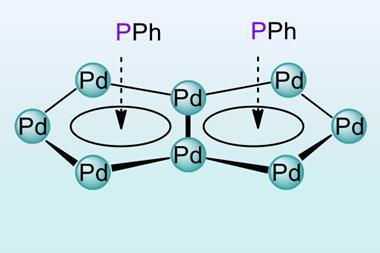£15 billion deal for neuroscience biotech aims to replace revenues from patent expiries
Johnson & Johnson has agreed to acquire neuroscience specialist Intra-Cellular Therapies for almost $15 billion (£12 billion). This could be a harbinger for more billion-dollar deals this year, say analysts, as big companies look to replace revenues from impending patent expiries on blockbuster drugs. The trend will be helped by expectations that the new US administration could adopt a lighter touch to regulating mergers and acquisitions (M&A).

The J&J deal would be the biggest biotech deal in over a year and will add treatments for disorders of the central nervous system. The most valuable is Caplyta (lumateperone) for depression, which J&J estimates will have peak annual sales above $5 billion.
‘This is right in [J&J’s] wheelhouse and investors have been urging it to do more in face of the patent cliff that it has in the next five years or so,’ says Jared Holz, healthcare equity strategist at Mizuho. J&J will face biosimilar competition for its blockbuster autoimmune antibody Stelara (ustekinumab) in 2025, after patents expired late in 2023.
Merck, Bristol Myers Squibb, Novartis, AstraZeneca and Amgen are all facing significant patent losses over the next five years, according to analysis by healthcare investment bank Leerink. Blockbusters whose patents are expiring include Merck & Co’s cancer antibody Keytruda (pembrolizumab) in Europe in 2028; Pfizer and Bristol Myers Squibb’s blood thinner Eliquis (apixaban) in 2027 to 2029; and Pfizer’s Prevnar pneumococcal vaccine in 2026.
‘M&A is all about helping to drive future growth,’ says Jeff Haxer, management consultant at Bain & Company. Most of the cost is in clinical development, but once products are on the market, profit margins are high. Hence acquisitions can insulate larger companies from early-stage risks and provide new revenue sources.
‘Neurology and neuropsychiatry continue to garner interest,’ says Holz. There is a high unmet medical need and many treatments for mental health conditions are old, with significant side effects. J&J has had success with Spravato, an esketamine nasal spray for depression, which looks likely to surpass $1 billion in annual sales.
Biogen-Eisai’s Alzheimer’s antibody Leqembi (lecanemab) was approved in the US for Alzheimer’s in 2023 and then Europe in late 2024. While Eli Lilly’s Kisunla (donanemab) injections were approved by the US Food and Drug Administration for Alzheimer’s last July. That success has led competitors to revive and acquire promising projects in the area. ‘Oncology and neurology are two areas where we have lots of patients and several debilitating diseases that have high unmet needs. It is just that the science is quite difficult,’ says Haxer.
But there is always risk in drug development. AbbVie bought Cerevel last year for $8.7 billion, but recently downgraded the value of the deal by $3.5 billion after the failure of a drug candidate for schizophrenia.
Broad appetite
Leerink’s analysis confirms that large pharma has a broad appetite for mergers and acquisitions, mostly in the small- to medium-size range, with oncology, immunology and neurology making up much of the deal activity from 2022 to 2024.
‘The small-to-mid-size biotechs, so mid-stage companies, have been the sweet spot,’ says Jeffrey Jonas, an analyst with investor firm Gabelli, with lots of deals in the $1–5 billion range. ‘Although it can be hard to value them when they are a few years from market,’ he adds. ‘A lot of the later-stage stuff tends to go for $10–15 billion and that’s been a little harder to swallow and to make the maths work.’
There was some trigger-shyness in the last 12 months, mostly just waiting to see what would happen with the election
Leerink’s analysis suggests the companies with the least exposure to sales loss from patent expiries are Takeda, Gilead, Sanofi, Novo Nordisk and Eli Lilly. But that won’t necessarily stop those firms looking for deals.
Lilly, along with Novo Nordisk, is flush from sales of GLP-1 diabetes and obesity drugs. The consensus view is that they have established a strong lead in this segment, with over $20 billion invested in manufacturing and supply chains, says Holz. ‘It is almost a nonstarter for anyone else to participate in the market on the injectable side. The production costs are high and if you have missed the initial wave, it’s going to be hard to make money,’ he adds.
Lilly has also agreed to buy Scorpion Therapeutics, a private biotech developing cancer treatments, for up to $2.5 billion. ‘Lilly has been very active in oncology in particular,’ says Jonas. ‘It’s also been pretty aggressive on radiopharmaceuticals.’
GSK has also agreed to buy IDRx, a biotech developing treatments for rare cancers, for $1 billion up front, with promises of a further $150 million in performance milestone payments. While Biogen took an opportunistic punt, offering to buy out its R&D partner Sage Therapeutics. Biogen and Sage signed a collaboration agreement in 2020 that saw Sage receive $875 million in cash and Biogen buy a $650 million stake in the biotech’s equity. One of the drugs named in that agreement, Zurzuvae (zuranolone), has been approved in the US for postpartum depression, but ‘the drug’s potential market is much smaller than hoped,’ says Jonas. The second candidate, intended to treat tremors and other neurological conditions, has struggled with disappointing clinical results, depressing Sage’s share price, which Biogen seems to be looking to take advantage of.
Sage has reportedly filed a lawsuit to block Biogen’s unsolicited takeover offer, and Jonas believes it will likely hold out for a better price, but has limited options.
Less scrutiny
Not everyone thinks J&J’s plan to acquire Intra-Cellular will sail through regulatory scrutiny. ‘I am a little worried about the [competition] review, because J&J is already strong in mental health conditions,’ says Jonas. He believes it may take time to assuage regulators, but that the incoming Trump administration could take a lighter touch.
‘The outgoing chairwoman of the FTC [Federal Trade Commission], Lina Khan, was very strict, especially with healthcare deals,’ says Jonas. ‘Everyone is pretty excited that the new administration is going to be more permissive.’
It’s a view shared by Haxer. ‘There was some trigger-shyness in the last 12 months, especially in 2024, mostly just waiting to see what would happen with the election,’ he says, adding that deals over $10 billion were most impacted by FTC scrutiny in the US. The FTC was seen to take a tough approach to deals between Amgen and Horizon and Novo Holdings and Catalent, for example, although both eventually went through. ‘The regulatory environment depressed some of the mega-deals and fundamentally I think we are going to see more large deals happen,’ says Haxer.

















No comments yet